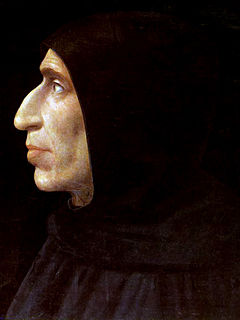A Quote by James Gleick
As soon as the printing press started flooding Europe with books, people were complaining that there were too many books and that it was going to change philosophy and the course of human thought in ways that wouldnt necessarily be good.
Related Quotes
I thought [books ban] was crazy. Really my thoughts were "This is America, we don't do this here" but of course I know a lot better now. And I wasn't the only one. Norma Klein was writing at the same time. Her books were going. So many of us. When you say to me, no you can't do this I say, oh yes I can.
One of the stories I love is how Gutenberg’s printing press set off this interesting chain reaction, where all of a sudden people across Europe noticed for the first time that they were farsighted, and needed spectacles to read books (which they hadn’t really noticed before books became part of everyday life); which THEN created a market for lens makers, which then created pools of expertise in crafting lenses, which then led people to tinker with those lenses and invent the telescope and microscope, which then revolutionized science in countless ways.
School did give me one of the greatest gifts of my life, though. I learned how to read, and for that I remain thankful. I would have died otherwise. As soon as I was able, I read, alone. Under the covers with a flashlight or in my corner of the attic—I sought solace in books. It was from books that I started to get an inkling of the kinds of assholes I was dealing with. I found allies too, in books, characters my age who were going through or had triumphed against the same bullshit.
There were many books in my parents' home. I'm from a family of five children and we were all readers. And so by the time I left home, I had already read many books, and I was very interested in reading more. That was when I started to have the desire to write. But it wasn't like a divine apparition with angels and seraphins on high. Not for me, at least.
The Roman philosopher Seneca the Younger (tutor to Nero) complained that his peers were wasting time and money accumulating too many books, admonishing that "the abundance of books is a distraction." Instead, Seneca recommended focusing on a limited number of good books, to be read thoroughly and repeatedly.
It's quite interesting, looking back at the first one [film about Harry Potter], nobody knew whether or not it was going to be successful as a film. The books were of course already very successful, but that's happened before, where the books were successful and the films weren't at all. But it turned out that they were.
Look at the great tradition of Western political philosophy. Those people were all immersed in revolutionary movements. Most weren't career academics - often, they were too radical to be accepted in the academy. Rousseau's books were banned. Jeremy Bentham and John Stuart Mill couldn't hold academic positions because they were atheists.
Only idiots or snobs ever really thought less of 'genre books' of course. There are stupid books and there are smart books. There are well-written books and badly written books. There are fun books and boring books. All of these distinctions are vastly more important than the distinction between the literary and the non-literary.

































